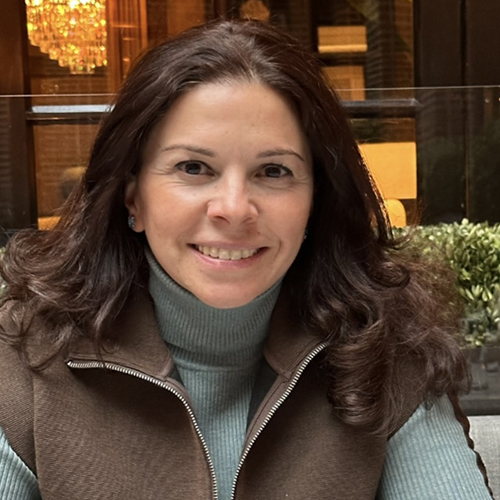Featured LSP: Mafalda Cortes Pereira and Multivertentes
22 years ago, Mafalda Cortes Pereira founded a boutique LSP to provide top-notch Portuguese language services, and came to specialize primarily in the medical and life science fields. More than two decades later, Mafalda caught up with the Bureau Works team to share her insights on how the industry has changed over the years and how it is changing right now. She shares what she has learned throughout her career, and what she is still learning in this unprecedented time of AI adoption.

“When Multivertentes first adopted CAT tools”, says Mafalda. “I remember people telling me that it slowed them down and that they would rather not use it. I think that type of resistance always occurs as new technologies emerge”
Now that AI is the latest technology that stands to modify translation workflows, Mafalda Pereira says that she is seeing a similar trend of reactions. She says that there is a mix of excitement and apprehension among her team when it comes to AI-augmented translation tools. They are an optimistic and tech-positive company, but the world feels like it is moving very fast. When considering the apprehension towards AI tools that she sees, Mafalda is reminded of those first few years with the CAT tools. She remarks that the fear of the unknown will always be a factor in how we adapt to new developments, especially when they are introduced as suddenly as AI.
As the founder and director of a translation agency, Mafalda’s perspective is unique. She understands that new technologies affect her in a fundamentally different way than they affect her team. “I see it not only from a translator’s perspective, but also as an entrepreneur,” she says. “So I don't feel insulted or replaced by technology; to me, it's just something new I need to look at for my business development."
However, Mafalda realizes that new tools have a massive impact on translators' workflows and require them to adapt their mindsets. AI tools require translators to interact with information in a fundamentally new way, which is a hard shift to make. "Now the machine is actually reading the whole text and considering the whole context to suggest something, which is completely different from the sentence-by-sentence translation we used to have," Mafalda Pereira explains.
Though she recognizes the challenge of the initial adaptations needed to adopt a new tool, she is confident that the new tools will create long-term benefits in terms of productivity and quality. She compares AI tools to painting machines that apply the first coat: The machine covers the wall with paint, and the translator uses their expertise to smooth the paint out, fill in gaps, and bring the job across the finish line in a state of excellence.
In addition to changing the way translators work, Mafalda also recognizes that new technologies affect how translators are paid. In her opinion, the contextual analysis abilities of AI tools make the traditional per-word payment model for translators inaccurate and unfair. "I still believe we need to find a different, more ethical way to pay for time, and I do believe it should be about time," she asserts. This shift would require the industry to rethink how it values and compensates the human expertise that complements AI, a change that Mafalda is hoping the industry will take on sooner rather than later.
As a business owner, Mafalda Pereira approaches these challenges within her own team from a place of trust and open communication. She and the team experiment with different tools and approaches, evaluating the impact on productivity and having honest discussions about rates as a result. This is the strategy that allowed them to effectively transition to offering MTPE services at scale, and that is now allowing them to transition to AI-augmented workflows.
Mafalda’s strategies for adaptation and her experience navigating change with Multivertentes provide a powerful blueprint for any LSP transitioning into a new technological paradigm. But more than that, her curiosity and dedication to advancing technologically while still keeping her people at the center of her operation provide an example that can guide our industry as we navigate these new challenges.
If you would like to learn more about the Portuguese language services offered by Multivertentes, click here.
Or, if you would like to connect with Mafalda Pereira, you can find her here.
Unlock the power of glocalization with our Translation Management System.
Unlock the power of
with our Translation Management System.



























